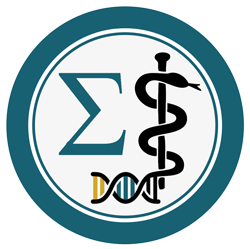Biodiversity is essential for nature to manage and balance the ecosystem and man has disrupted it, nowhere more evident than in the environments that we live in. Our homes and other indoor spaces prevent nature’s natural forces from exerting a balance, enabling dangerous organisms to gather in safety, duplicate and be protected through surface biofilm colonisation.
Our project is an interdisciplinary synthesis of applied biofilm profiling/infectious disease research, mathematical modelling, new technology and sophisticated software with an integrated approach of collaboration. We have established partnerships and collaborations with both specialist academic and commercial expertise in every aspect of our project. Protlab intends to align with the WHO investigation of fomite transmission (see our response to the WHO report) through the identification and mathematical sequencing of active ingredients colonising biofilms that act as
carriers/reservoirs of diseases on fomite surfaces.
Over the last century there has been a steady increase in the incidences of infectious disease outbreaks on the human race. Many of the core pathogens are specific to species and nature never intended humans to come into contact with them. In addition, man has accelerated a dramatic change in the biosphere, through deforestation, destruction of habitats, global warming and over- population that has led to an unnatural proximity with and between wildlife (including insects).
We also wear clothes and carry items that carry biofilm which although resilient to deactivation can easily be detached through contact. The emphasis on use of masks only highlights the air-borne transmission stage and although washing hands also helps enormously, it leaves millions of hidden dangers of biofilm on surfaces. Potentially, biofilm once ingested can remain active and even mutate within the human body and be passed on, explaining some genetic transmissions.
Globalization and the enclosed spaces that we inhabit enables rapid transmission and virus evolution through surface biofilm colonisation that remains viable for days. ‘Biofilm infections are estimated to be responsible for up to 80% of all infections in humans and animals, posing a major health challenge’ (Microbiology Society, 2019).
We are now seeing man suffering from so-called ‘progress’ and need to redress the balance if at all possible. Putting man first and destroying all the wildlife is not the answer, neither is waiting for further ‘forced’ mutations of nature to become pandemics and responding, however well.
We need to understand these cocktails of unintended ingredients to identify what is out of place in the biosphere, to recognise that transmission is more than hand and mouth, that travel is a free ride for these viruses and that the comfort of our own home is also a breeding ground for pathogens.
Following the successful development of a robotic, mobile clinical room UV-C air cleansing device, we have been inspired to explore the potential of a ‘next generation’ cleansing system targeting the sheltered environment of indoor communal spaces.
Protlab is developing CASPER (Clean Air and Surface Pathogen Eradication Robot) systems to be unique integrated devices using sophisticated technology, analysing, identifying, and categorising Over the last century there has been a steady increase in the incidences of infectious disease outbreaks on the human race. Many of the core pathogens are specific to species and nature never intended humans to come into contact with them. In addition, man has accelerated a dramatic change in the biosphere, through deforestation, destruction of habitats, global warming and over- population that has led to an unnatural proximity with and between wildlife (including insects).
We also wear clothes and carry items that carry biofilm which although resilient to deactivation can easily be detached through contact. The emphasis on use of masks only highlights the air-borne transmission stage and although washing hands also helps enormously, it leaves millions of hidden dangers of biofilm on surfaces. Potentially, biofilm once ingested can remain active and even mutate within the human body and be passed on, explaining some genetic transmissions.
Globalization and the enclosed spaces that we inhabit enables rapid transmission and virus evolution through surface biofilm colonisation that remains viable for days. ‘Biofilm infections are estimated to be responsible for up to 80% of all infections in humans and animals, posing a major health challenge’ (Microbiology Society, 2019).
We are now seeing man suffering from so-called ‘progress’ and need to redress the balance if at all possible. Putting man first and destroying all the wildlife is not the answer, neither is waiting for further ‘forced’ mutations of nature to become pandemics and responding, however well.
We need to understand these cocktails of unintended ingredients to identify what is out of place in the biosphere, to recognise that transmission is more than hand and mouth, that travel is a free ride for these viruses and that the comfort of our own home is also a breeding ground for pathogens.
Following the successful development of a robotic, mobile clinical room UV-C air cleansing device, we have been inspired to explore the potential of a ‘next generation’ cleansing system targeting the sheltered environment of indoor communal spaces.
Protlab is developing CASPER (Clean Air and Surface Pathogen Eradication Robot) systems to be unique integrated devices using sophisticated technology, analysing, identifying, and categorising.
